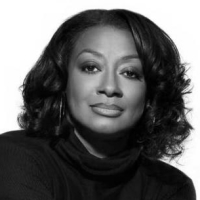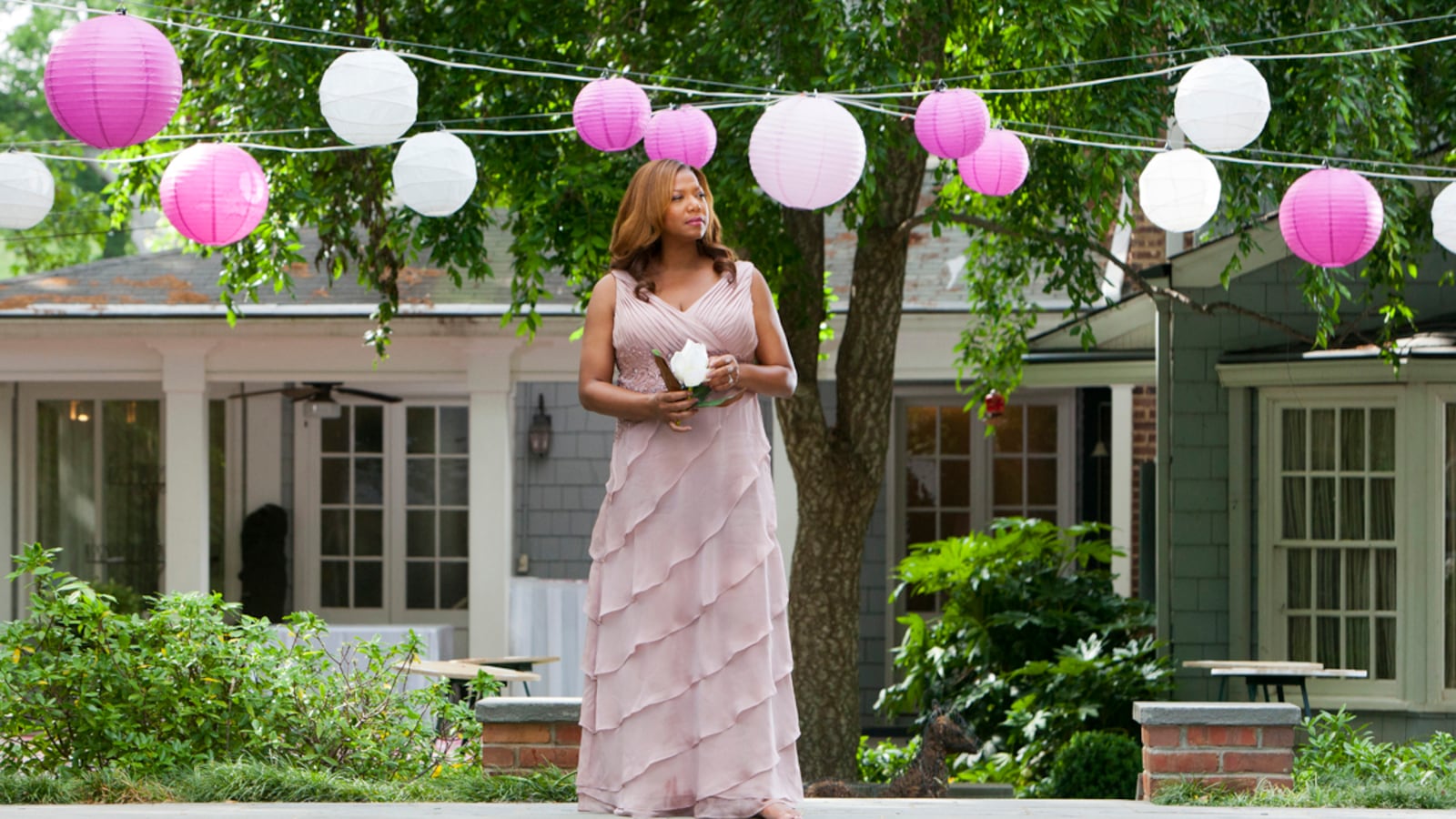Queen Latifah isn’t the least bit weary of discussing lack of diversity in Hollywood. While many in the industry often shy away from the subject some deem too passé in 2012, Dana Owens, aka “Queen,” relishes the chance to remind the masses exactly why variety is the spice of life.
But the Queen doesn’t just talk about change—she delivers it. And this weekend she puts her money where her mouth is with a remake of the fan favorite Steel Magnolias. Latifah stars in the Lifetime movie set to air tonight and also serves as an executive producer of the film whose cast is vastly different from the one Julia Roberts starred in nearly 25 years ago.
“When Craig (Zadan) and Neil Meron called me with the idea of redoing Magnolias with a black cast, I was all in,” remembers Latifah. “I’d worked with them before, so I didn’t even need to see the script for it. I also knew that story was timeless and colorless, which is something a lot of people need to understand about life. Certain things in life are universal.”
Friendships, pain, and the lost of a loved one all fit the bill of universal experiences and Steel Magnolias (the original and the remake) tugs at the heart from the opening scene. Based on a play by Robert Hartling, the story revolves around a small group of women who form a close-knit bond while getting their hair done on weekly visits to the local salon.
When Oscar-winning producers Zadan and Meron (Chicago) first had the idea to remake Magnolias with an all African-American cast, they knew exactly who their first call would be. The two worked with rapper-turned-actress Latifah on both Chicago and Hairspray and felt certain she had the star power and acting chops to introduce Magnolias to a brand new audience.
“Alfre Woodard was in automatically because she wasn’t having it any other way,” laughs Latifah. “She was born to play the role has, and she had to have it. The rest of the cast perfectly fit their roles, too. I couldn’t dreamed of a better group of women around me.”
That’s hard to argue with, given that veterans Phylicia Raschad, Alfre Woodard, singer Jill Scott, and Adepero Oduye round out the cast list.
Ensuring more diverse images of women in the worlds of both music and media was a path Latifah decided to trod long ago. From her hit rap single “Ladies First,” to her lead role in the female focused comedy Living Single, Latifah crafted the perfect crossover game plan for any talent looking to appeal to a mainstream audience.
But in Latifah’s mind, crossing over never meant checking out. As she continued snagging roles in film after film, she quickly realized she’d need to form her own production company if she ever wanted to make a real impact on the Hollywood from the inside out.
“Growing up I had a funky skateboard and I loved watching Dolly Parton movies,” said Latifah. “That’s probably not what people expect to hear from someone like me, but it proves my point that you can’t put people in the box. People have to open their minds more and not think one thing of particular type of people. It doesn’t work like that.”
The long time face of Cover Girl cosmetics says she ‘s happy to be apart of a remake that so clearly fights stereotypes on numerous levels. The new film effectively showcases women of color in roles that display warmth, depth, and smarts, which goes a long way to eradicate the deafening messages and negative images shown on reality television. The 42 year old says she’s well aware that minority female characters such as the sensible and career minded woman she played in the 90’s television Living Single have now been replaced with female catfights and beat downs.
“I don’t like that element of reality television at all,” said Latifah, who executive produces Single Ladies for VH1. “My rap songs were always about women being respected and loved by men and other women. We are the mothers of the universe. If you ever see a baby come into the world, you know that women are amazing and incredible. Women should treat each other that way, and everyone else should do the same.
Latifah fondly remembers chastising other girls in high school when they got into fights over the simple things like boys.

“I’d be the one breaking the fight up,” she remembers. “I’d be one the one telling the guys to talk to their girls and get it straight before something else went down. No one wanted that drama.”
Respect for the female gender wasn’t an issue on the set of Magnolias, where television, stage, and screen icons Rashad and Woodward received their due deference from their younger co-stars.
“It was amazing to be on the set and feel that great mix of professionalism, history, and love,” said Jill Scott. “It was one of the most enjoyable sets I’ve worked on. Sometimes Queen, myself, and the others would just stand back and watch Phylicia and Alfre do their thing in awe of their grace and talent.”
Latifah agreed that her time with the women on the set of Magnolias was one she won’t soon forget and one she’s quite sure she’ll experience again.
“As long as I can do what I can to change the landscape, I will,” said Latifah. “I’ll always look out for stories that highlight women and women of color always because that’s what I’ve always done. That’s never going to change while I have some clout.”





